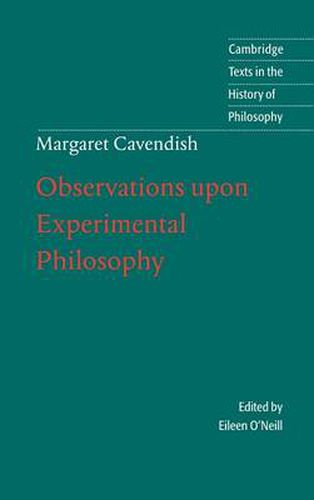Readings Newsletter
Become a Readings Member to make your shopping experience even easier.
Sign in or sign up for free!
You’re not far away from qualifying for FREE standard shipping within Australia
You’ve qualified for FREE standard shipping within Australia
The cart is loading…






Margaret Cavendish’s 1668 edition of Observations upon Experimental Philosophy, presented here in its first modern edition, holds a unique position in early modern philosophy. Cavendish rejects the Aristotelianism which was taught in the universities in the seventeenth century, and the picture of nature as a grand machine which was propounded by Hobbes, Descartes and members of the Royal Society of London, such as Boyle. She also rejects the views of nature which make reference to immaterial spirits. Instead she develops an original system of organicist materialism, and draws on the doctrines of ancient Stoicism to attack the tenets of seventeenth-century mechanical philosophy. Her treatise is a document of major importance in the history of women’s contributions to philosophy and science.
$9.00 standard shipping within Australia
FREE standard shipping within Australia for orders over $100.00
Express & International shipping calculated at checkout
Margaret Cavendish’s 1668 edition of Observations upon Experimental Philosophy, presented here in its first modern edition, holds a unique position in early modern philosophy. Cavendish rejects the Aristotelianism which was taught in the universities in the seventeenth century, and the picture of nature as a grand machine which was propounded by Hobbes, Descartes and members of the Royal Society of London, such as Boyle. She also rejects the views of nature which make reference to immaterial spirits. Instead she develops an original system of organicist materialism, and draws on the doctrines of ancient Stoicism to attack the tenets of seventeenth-century mechanical philosophy. Her treatise is a document of major importance in the history of women’s contributions to philosophy and science.